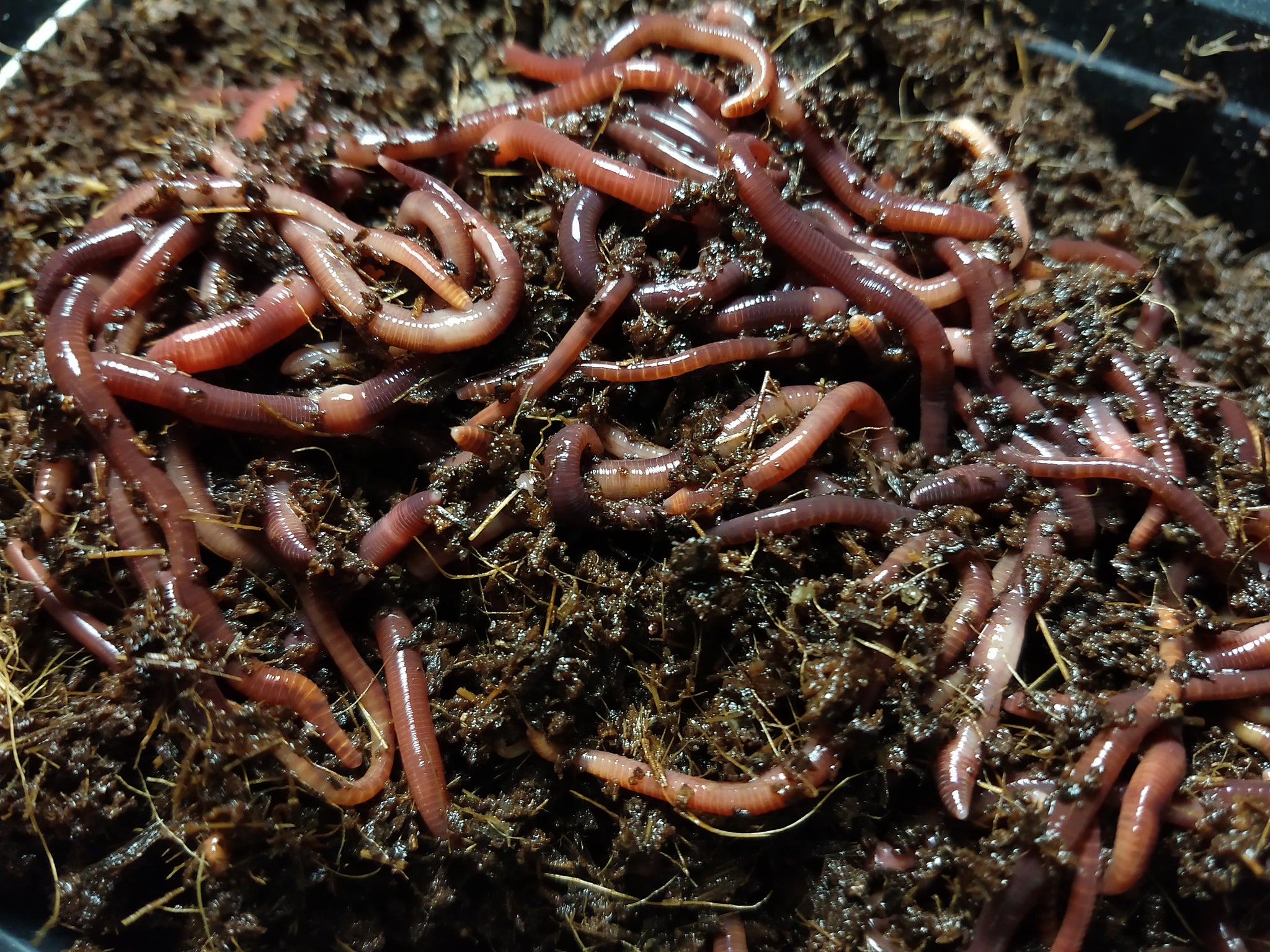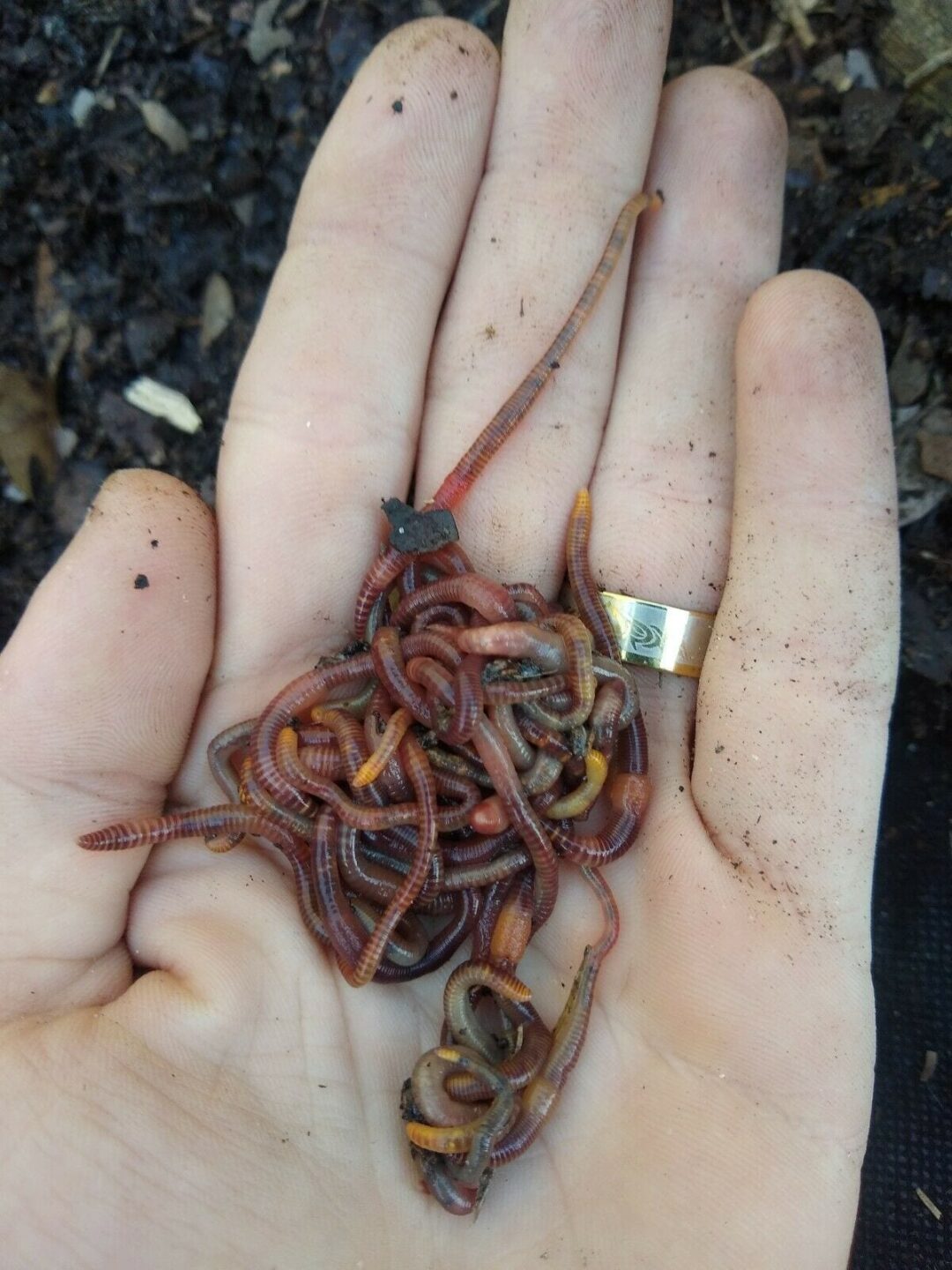Take Care of Your Lawn with the Best Products from Lake Hickory Bait
Take Care of Your Lawn with the Best Products from Lake Hickory Bait
Blog Article
The Amazing World of Red Wigglers: Boost Your Soil Fertility Today
The duty of red wigglers, or Eisenia fetida, in enhancing soil fertility is a topic of growing passion among garden enthusiasts and agricultural professionals. These tiny yet effective organisms change organic waste into important worm castings, dramatically boosting soil health and promoting lasting methods. As we check out the advantages of vermicomposting and the sensible actions to produce an efficient worm container, the prospective influence of these worms on your horticulture success ends up being progressively noticeable. Comprehending the nuances of their care and application may just transform the means you approach dirt monitoring. What understandings can be gained from incorporating these amazing animals into your gardening routine?
Comprehending Red Wigglers
Red wigglers, scientifically referred to as Eisenia fetida, are a species of earthworm that play an essential function in boosting dirt fertility. These worms grow in organic-rich settings, such as compost heap and rotting plant product, where they eat organic waste and eliminate nutrient-dense castings. Their special makeup, featuring a fractional body and a clitellum, enables them to replicate rapidly and successfully procedure large amounts of raw material.

The environmental relevance of red wigglers expands beyond simple waste processing; they contribute to the dirt food web, promoting a varied community of microbes that further improve soil health and wellness. Recognizing the biology and actions of red wigglers is vital for using their complete capacity in sustainable agriculture and gardening practices.
Benefits of Vermicomposting
(Red Wiggler Express)Utilizing the power of red wigglers through vermicomposting deals numerous benefits that substantially enhance dirt health and wellness and fertility. One of the primary benefits is the production of nutrient-rich worm castings, which are an excellent natural fertilizer. Red Wiggler Express. These spreadings contain necessary nutrients like nitrogen, phosphorus, and potassium, promoting robust plant development and boosting plant returns
The visibility of worm castings enhances soil structure, allowing for better water retention and drainage. Red wigglers aid damage down natural matter, increasing decay and reusing nutrients back right into the dirt.
Vermicomposting likewise fosters microbial activity, which is vital for a healthy soil environment. Beneficial microbes grow in the existence of worm castings, assisting in the malfunction of natural products and enhancing vitamins and mineral accessibility to plants.
Lastly, vermicomposting offers as a reliable waste monitoring option, lowering land fill waste by reusing cooking area scraps and various other natural products. This not only contributes to environmental sustainability yet likewise advertises a round economic situation within gardening and farming.
Just How to Establish a Worm Bin
Setting up a worm bin is an uncomplicated procedure that can significantly improve your composting efforts. Begin by choosing an ideal container, which can vary from a commercially available worm bin to an easy plastic or wood box (Red Wiggler Express). Guarantee the container has sufficient ventilation; little holes in the cover and sides will certainly help with air flow
Next, produce a bedding layer to supply wikipedia reference a comfortable environment for the red wigglers. This can be made from shredded newspaper, cardboard, or coconut coir, moistened to a moist, sponge-like consistency. Fill the bin to about one-third full with this bed linen material.
Once the bed linen is prepared, it's time to introduce the worms. Red wigglers prosper in natural waste, so location them delicately onto the bedding. Cover the worms with a light layer of added bed linen to aid them accustom.
Feeding Your Red Wigglers
Giving the appropriate food for your red wigglers is important for their health and wellness and the performance of your composting system. Red wigglers thrive on a varied diet plan, largely consisting of natural products such as fruit and vegetable scraps, coffee premises, and shredded paper. These materials not just give important nutrients but additionally add to the microbial activity in the worm bin, which is essential for the worms' digestion.
It is very important to avoid specific foods, such as dairy products, oils, and meats, as these can attract insects and develop undesirable smells. In addition, citrus peels and extremely zesty foods ought to be limited because of their potential to harm the worms. A well balanced method to feeding entails checking the quantity of food introduced to the bin, guaranteeing that it is taken in within a reasonable amount of time to avoid excess waste accumulation.
To promote optimum food digestion, it is helpful to slice or shred bigger food items prior to adding them to the bin. This technique boosts the surface for microbial activity, promoting quicker decay and improving the total performance of your composting system. Routinely observing the worms' feeding behaviors will aid you readjust their diet plan as required.
Using Worm Castings in Your Yard

(Red Wiggler Express)Including worm castings into your yard can be completed by mixing them into the dirt or utilizing them as a top dressing. The slow-release nature of these spreadings guarantees that nutrients are offered to plants over an extensive duration, lowering the requirement for artificial fertilizers. Additionally, worm spreadings have beneficial microorganisms that advertise healthy dirt communities, improving the overall strength of your garden.
To optimize the benefits, purpose to apply roughly one part worm spreadings to three parts soil in your growing beds. Normal applications can cause enhanced plant yields and healthier plants, making worm spreadings an invaluable resource for both novice and seasoned garden enthusiasts alike. By using this natural change, you can grow a growing garden while contributing to sustainable horticulture methods.
Verdict
In conclusion, red wigglers exemplify the crucial function of vermicomposting in enhancing soil fertility. Their capacity to convert organic waste into nutrient-rich castings considerably enhances dirt framework and supports microbial diversity.
Report this page